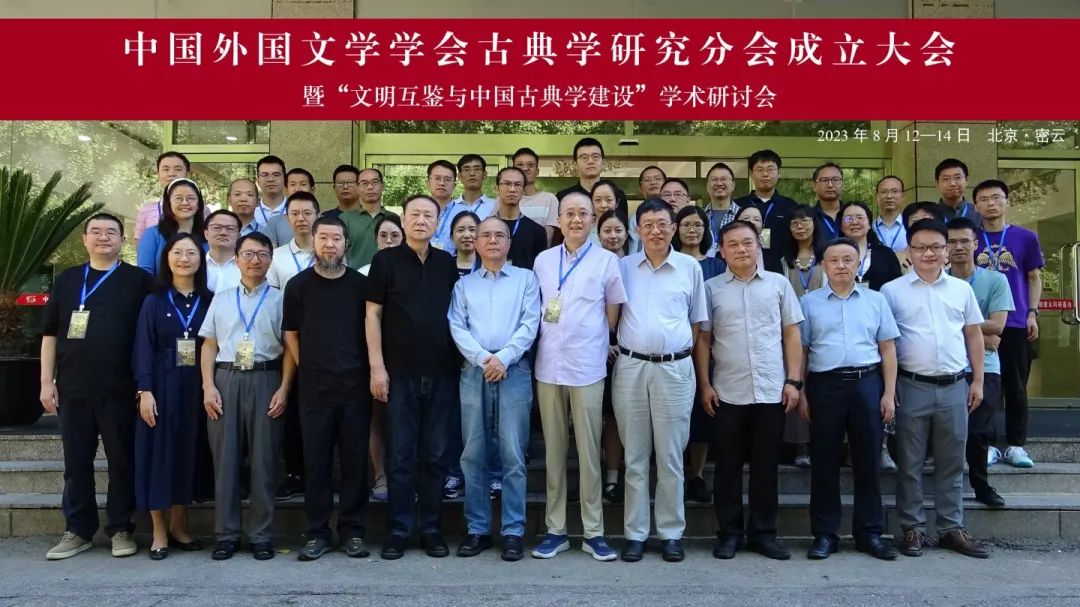

Trends
News Release
The Inaugural Conference of the Classical Studies Branch of the Chinese Association of Foreign Literature & the Symposium on Mutual Learning among Civilizations and the Building of Chinese Classics
2023-09-30
Sourced from WeChat Official Account: Research in Classics
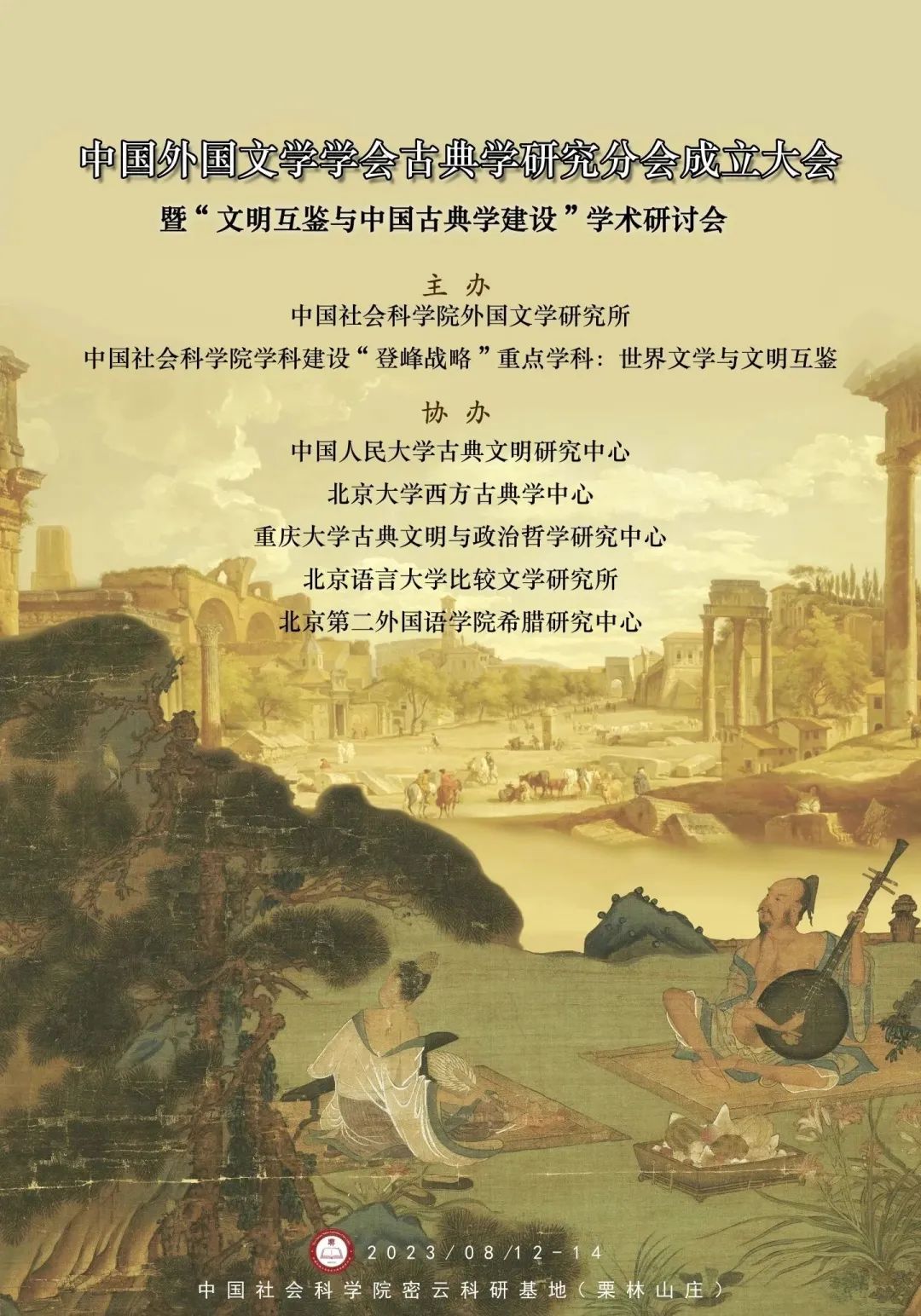
The Inaugural Conference of the Classical Studies Branch of the Chinese Association of Foreign Literature and the Symposium on "Mutual Learning among Civilizations and the Building of Chinese Classics" was successfully held in the Miyun Research Base of the Chinese Academy of Social Sciences (CASS) from August 12 to 14, 2023.
This conference was hosted by the Institute of Foreign Literature, CASS, and "World Literature and Exchange among Civilizations" as a key discipline of the "Peak Strategy" under CASS' discipline development initiative and organized by the Centre for Classical Civilization of the Renmin University of China, the Centre for Classical Studies of Peking University, the Research Center for Classical Civilization and Political Philosophy of Chongqing University, the Institute of Comparative Literature & Culture Studies of Beijing Language and Culture University, and the Center for Greek Studies of Beijing International Studies University. Nearly 50 Chinese experts and scholars from around 30 universities, research institutes, and publishing houses attended the conference.
The Opening Ceremony

The opening ceremony
On the morning of August 13, the opening ceremony of the conference was hosted by Li Yongping, president and researcher of the National Association for the Study of Literature in German, Chinese Association of Foreign Literature. Cheng Wei, president and research fellow of the Chinese Association of Foreign Literature, Liang Zhan, secretary-general and research fellow of the Chinese Association of Foreign Literature, and Liu Xiaofeng, president and professor of the Classical Studies Branch of the Chinese Association of Foreign Literature, delivered speeches respectively.
President Cheng Wei first expressed warm congratulations on the establishment of the Classical Studies Association on behalf of the Chinese Association of Foreign Literature. He pointed out that it is complementary and supportive to the Chinese Association of Foreign Literature although the Classical Studies Association is a subsidiary of the Chinese Association of Foreign Literature. The Chinese Association of Foreign Literature has assembled researchers of foreign literature in various languages to pursue broad academic coverage and attached importance to the comparison and mutual learning between different civilizations, but most of the professional studies rely on the second-tier disciplines and sub-institutes. Having extensive knowledge but ignoring special and professional disciplines are ultimately superficial cognition, while focusing on specific studies and ignoring board range of knowledge can easily result in narrow and fragmented learning. According to Cheng Wei, the establishment of the Classical Studies Association aimed to provide a long-term public exchange platform for classical researchers across the country so as to break the barriers of disciplines and take the comparative perspective between China and the West to study the ancient Greek and Roman civilizations, and European classic civilization. He expected that the development of the classics can lay a foundation for China's future academic studies and provide insights on how China should confront the impact and challenge of Western civilization.
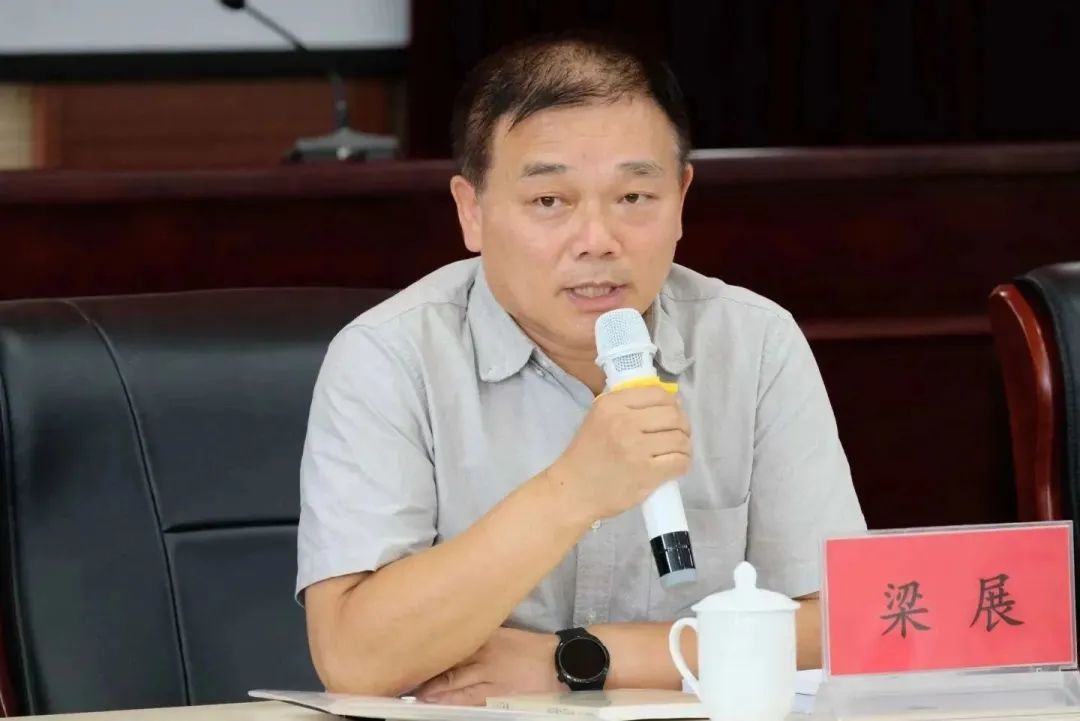
In his speech, secretary-general Liang Zhan first reviewed the fine tradition of the Institute of Foreign Literature, CASS, in translating and studying ancient Greek and Roman literature. He also gave a brief account to the attendees of the achievements of the institute in the disciplinary building of classics research and its future planning. Following the call of General Secretary Xi Jinping for the exchanges on an equal footing and mutual learning between different civilizations, the leaders of the CASS have attached great attention to and provided powerful support for the efforts of the institute to build the classics research discipline. In the future, they will put Western classics on the top priority of its discipline reconstruction and development. In terms of the publication of journal, Research in Classics has been approved as the official journal, reaping its most important academic results over the past 40 years. As for the disciplinary establishment, apart from the establishment of the Classical Studies Association, the founding of editorial office of Research in Classics and the classics research office has also been put on the agenda.
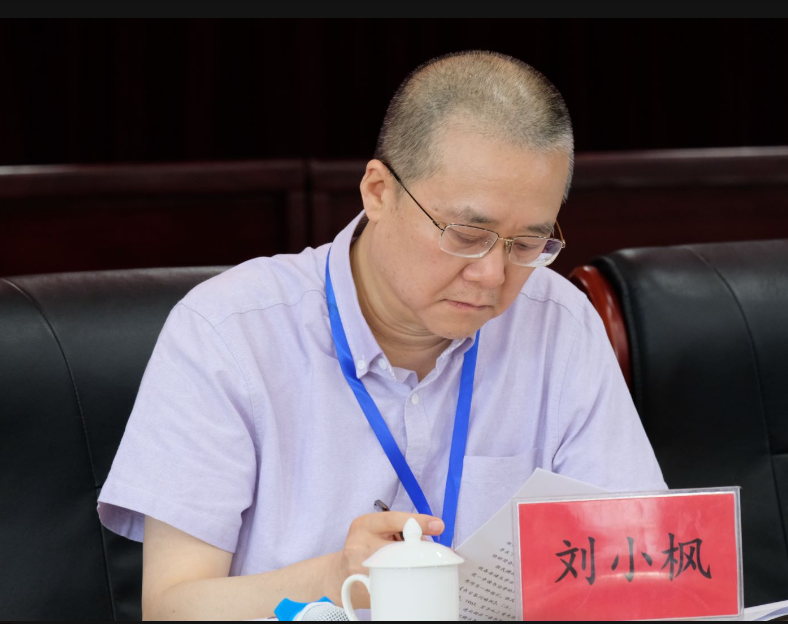
President Liu Xiaofeng first stressed in his speech the significance of the establishment of the Classical Studies Branch of the Chinese Association of Foreign Literature to the development of Chinese classical studies as it signified the official inclusion of classics into China's academic system, to which he was very delighted. In the meanwhile, he expressed his sincere appreciation to the robust support of the Chinese Association of Foreign Literature, as well as the leaders of both CASS and the Institute of Foreign Literature. At last, Professor Liu Xiaofeng emotionally recalled the time when the first annual conference of the Chinese Association of Foreign Literature was held 40 years ago, especially the knowledge and charisma of esteemed scholars such as Tian Dewang, Ge Baoquan, Ji Xianlin, among others, to encourage everyone to follow their footsteps and work hard to contribute to the development of China's classics research in a down-to-earth manner.
Seminar I:Mutual Learning among Civilizations and the Building of Chinese Classical Studies
After the opening ceremony, seminars of the conference kicked off. There were altogether three seminars at this conference. The first one themed on "mutual learning among civilizations and the building of Chinese classical studies" was hosted by Research Fellow Li Yongping.

The first seminar.
The first speaker was Professor Liu Xiaofeng. The topic of his speech was "Three concepts of classical studies". Specifically, it positioned classical studies from three different perspectives, namely the disciplinary establishment, the history of Western classical studies, and the future development of Chinese civilization.
Professor Liu pointed out that there is considerable ambiguity in the establishment of Chinese arts disciplines from the disciplinary perspective. The relationship between classical studies and the traditional first-level disciplines such as literature, history and philosophy needs to be confirmed. For example, if classical studies is recognized as a first-level discipline, how should its subsidiary second-level discipline be set is a question worth considering.
From the historical perspective, the development of Western classical studies is roughly divided into three periods. The primary period is from the 15th to the 18th century when classical studies was closely related to philology. The second period is from the 19th to the 20th century when classical studies, largely influenced by social sciences, particularly archaeology and anthropology, gradually diverged from the ancient philology. The latest period features the so-called post-classicism when classical studies rescinded the distinction between the superiority and inferiority in the traditional senses and was controlled by the mainstream ideology. Professor Liu emphasized that the classical studies we advocate should be the combination of classical philology and ancient political philosophy.
In the end, Professor Liu Xiaofeng reminded us of the relationship between the Western classical academic development and the world history. When Europe rose in modern times, the classical literature and history tradition of the languages of European nations such as English, French and Germany, had taken shape. It is different from the ancient Greek and Roman traditions. Therefore, the difference between the two Western classical traditions should be fully realized in establishing the Chinese classical studies so as to provide clearer guidance for the future development of Chinese civilization.
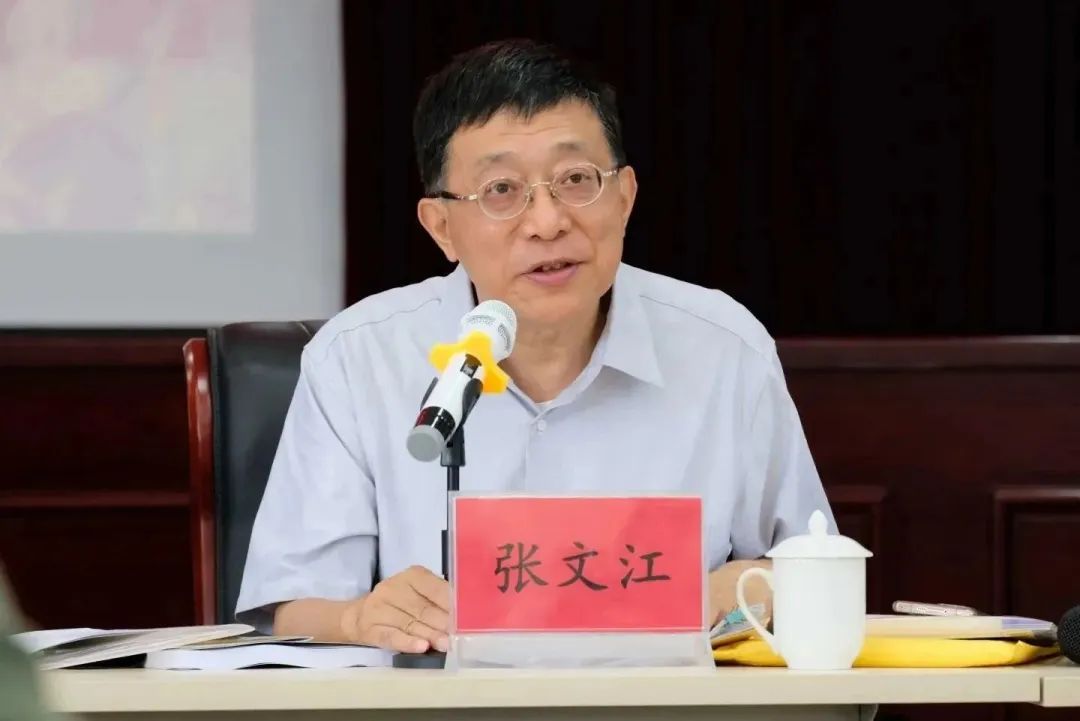
The second speaker was Zhang Wenjiang, vice president of the Classical Studies Branch of the Chinese Association of Foreign Literature, and professor of the School of Humanities, Tongji University. The topic of his speech was "On the building of the Chinese classics from the perspective of mutual learning among civilization.
First, Professor Zhang Wenjiang analyzed the meaning of the term "mutual learning", which means taking each other as the mirror, reflecting each other, and looking at oneself from the other. To achieve mutual learning, we should find our own position. In terms of the Chinese civilization, we should date it back to the Shang Dynasty (1600 BC-1046 BC) and even earlier from the dramatic changes at the end of the Qing Dynasty (1644-1911). As for Western civilization, it refers to the period from ancient Greek and Roman eras to the modern times. The classical studies focus on a long-term evolution of civilizations, and interpret the core classics of China and the West during this period.
Professor Zhang believed that Chinese classics, inspired by Western classics, was established in the process of comparing while contrasting with Western classics, so the two classics bear similar but different visions and ambitions. The development of Chinese classics can lead to two different forms. One is the same to Western classics while the other is different from it. The former continues to introduce the results of the Western classics to enrich the Chinese civilization, and the latter, reflected by the Western tradition, understand deeper its own tradition to explore new roads while nurturing the world culture instead. No matter which type it is, the Chinese classics needs to consider how to face reality, seek the deep roots of the Chinese and Western classics behind the reality, and identify their concepts to explore the future.
At last, Professor Zhang pointed out that we should "categorize classical works systematically and find their origin, cause and effect" in terms of the classics building, which has been the method of academic research in the Chinese tradition and deserves our attention when we introduce the Western classics.
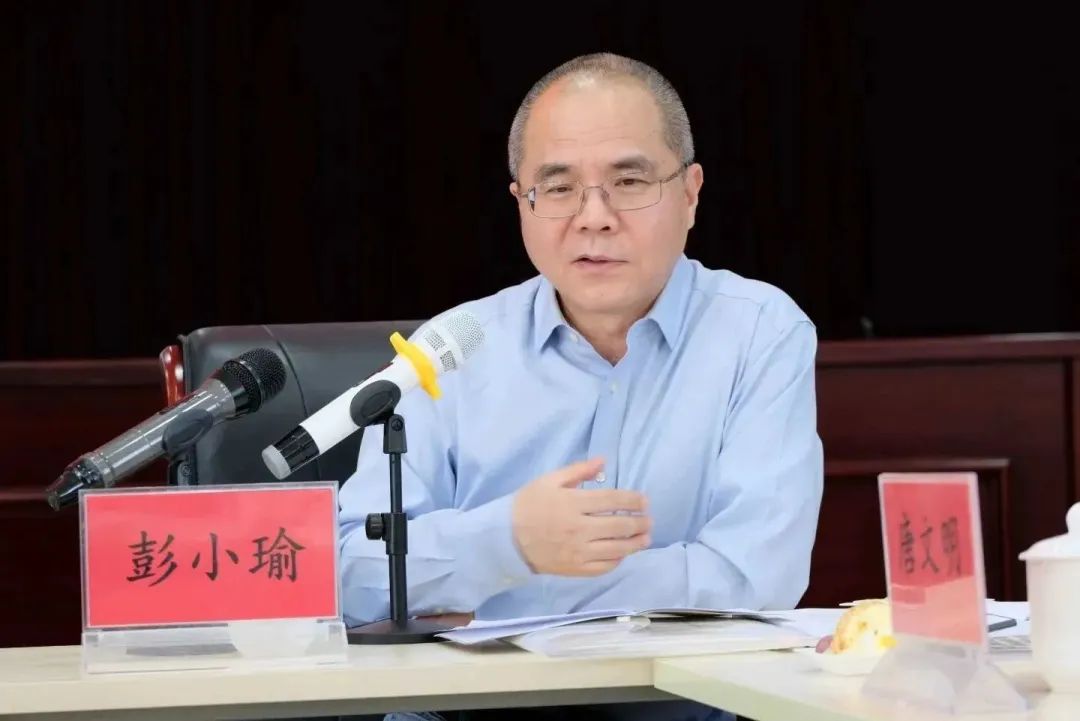
The third speaker was Peng Xiaoyu, vice president of the Classical Studies Branch of the Chinese Association of Foreign Literature, and director and professor of the Centre for Classical and Medieval Studies of Peking University. The topic of his speech was "What we should do: Understanding the Western civilization and after understanding it."
First, Professor Peng also focused on the disciplinary positioning of classics. As classics does not have a clear position in China's system of disciplinary establishment, many problems will arise in the cultivation of doctoral students in classics and their employment.
In addition, there is a serious technical problem in nurturing students majoring in classics. To be specific, inadequate courses of Latin and ancient Greek languages have been offered in the disciplines of history and others of classics, which is detrimental to the long-term development of the students.
In the end, Professor Peng noticed that the discipline of classics not only involves language and literature research, but also includes history, archaeology and other important subjects. As an organization under the Chinese Association of Foreign Literature, the Classical Studies Association has distinctive advantage in strengthening the language training of students.
After the keynote speeches, the conference entered round-table discussions. It was hosted by research fellow Liang Zhan with 10 experts and scholars giving remarks.
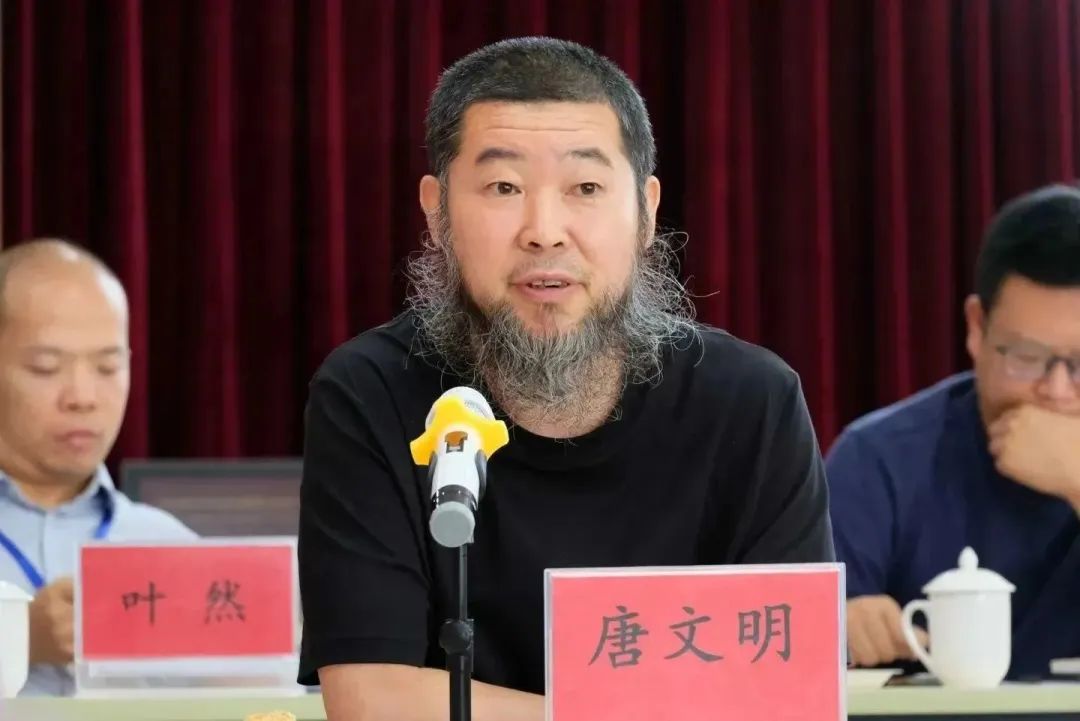
Tang Wenming, professor of the Department of Philosophy, Tsinghua University believed that the mission of classics is to promote the progress of the Chinese civilization and overcome the drawbacks of modernity by thoroughly studying the Western civilization, which is similar to the proposition of "returning to studying the six classical works of Confucianism after learning Buddhism and Taoism" made by Confucians in the Song Dynasty (960-1279). In terms of methodology, classics is essentially the studies of classical civilization, so we should understand classical civilization according to our own civilization instead of modern rationality. In this sense, we should actively explore the methods and tradition of its own discipline in studying classics. Mr. Liang Qichao believed that there were three layers of civilization, including wares, systems and spirit. And according to Hegel, spirit comprises arts, religion and philosophy.
Professor Tang thought that three parts constituting absolute spirit understood by Hegel should become the core content of the classical studies. Finally, he said that classics should break the precedent established in modern disciplinary concepts since the Enlightenment while keeping a distance from the current concerns.
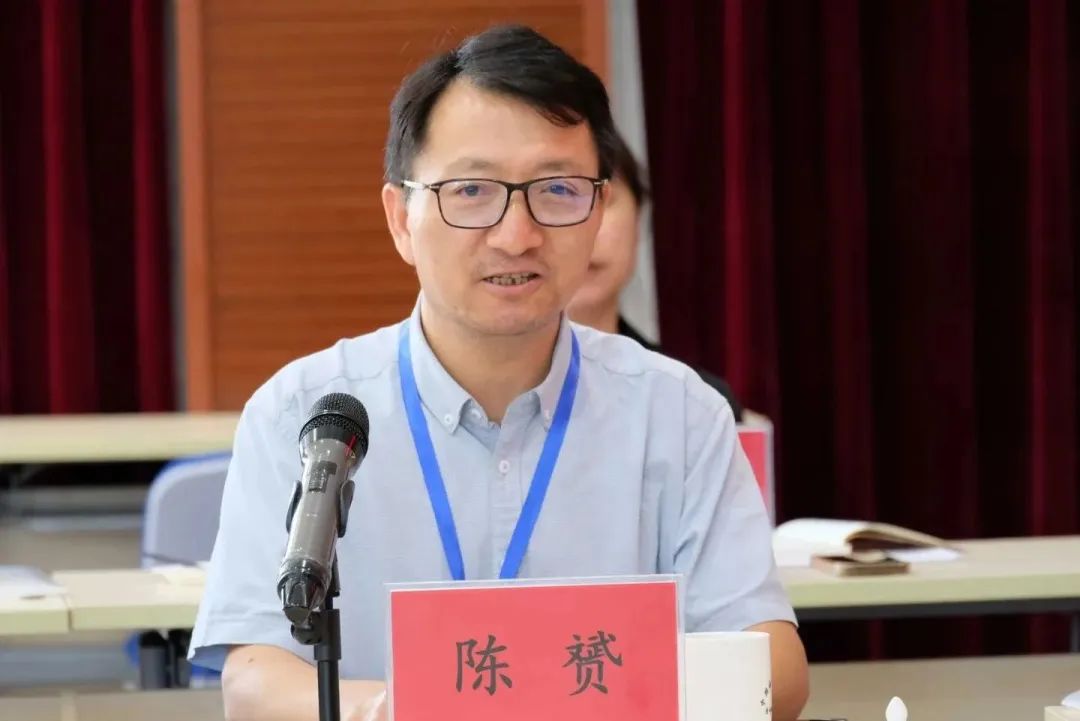
In his remarks, Chen Yun, professor of the Department of Philosophy, East China Normal University (ECNU), first reviewed the analytical trend of contemporary Chinese philosophy. Compared with analyzing philosophy, the occurrence of classics offers a more profound and integral view for philosophy, so the building of classical studies may become an important opportunity to break the myth of modernity. Professor Chen thought that only by more deeply and systematically absorbing and using the fruit of the Western civilization can we see more clearly the origin, development and future of the Western civilization. Only in this way can its contribution and limit be shown, which is also a condition for the Chinese civilization to understand and re-position itself.
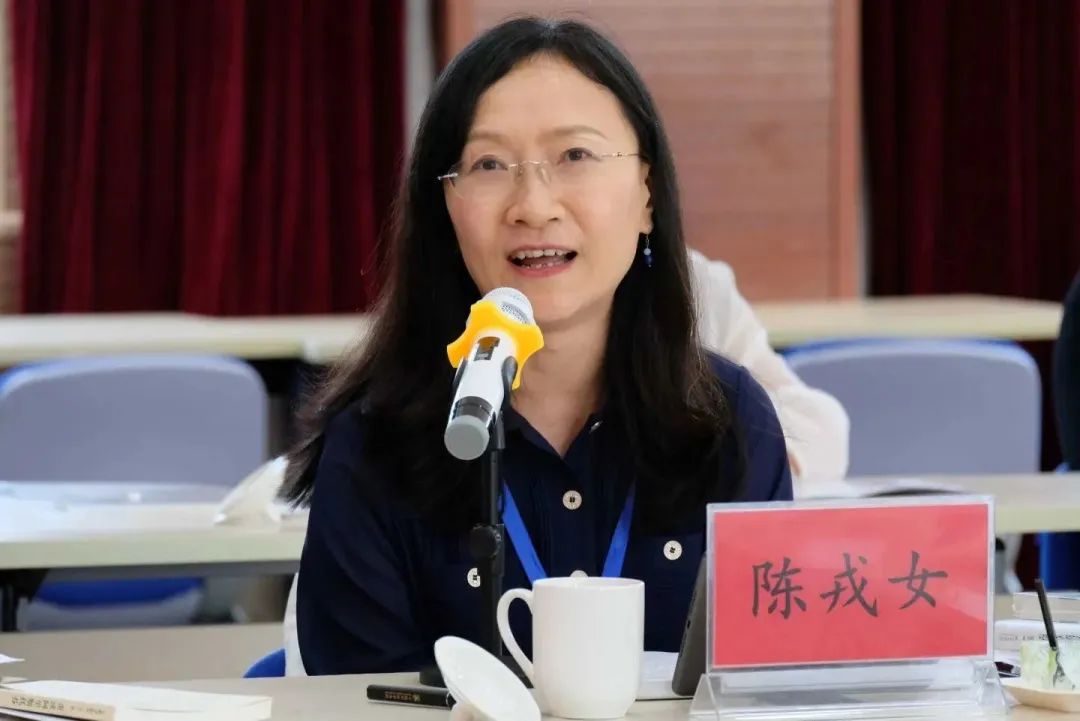
Chen Rongnv, professor of the Institute of Comparative Literature, Beijing Language and Culture University, paid attention to the further understanding of China toward the Western classics over the past century. She pointed out that China's cognition of the Western civilization was not obtained overnight. It fully involves the shift of people's ideas and methods as well as the dramatic changes of their thoughts in many disciplines such as classics, translation and history. Moreover, knowing the process of China's re-understanding the Western classics can also bring bout many insights to us, while contributing to mutual learning among civilizations.
Finally, considering the dynamic force of Chinese classics comes from various disciplines, Professor Chen also advocated for scholars from different disciplines to strengthen exchanges and make joint contributions to the promotion of Chinese academic progress.
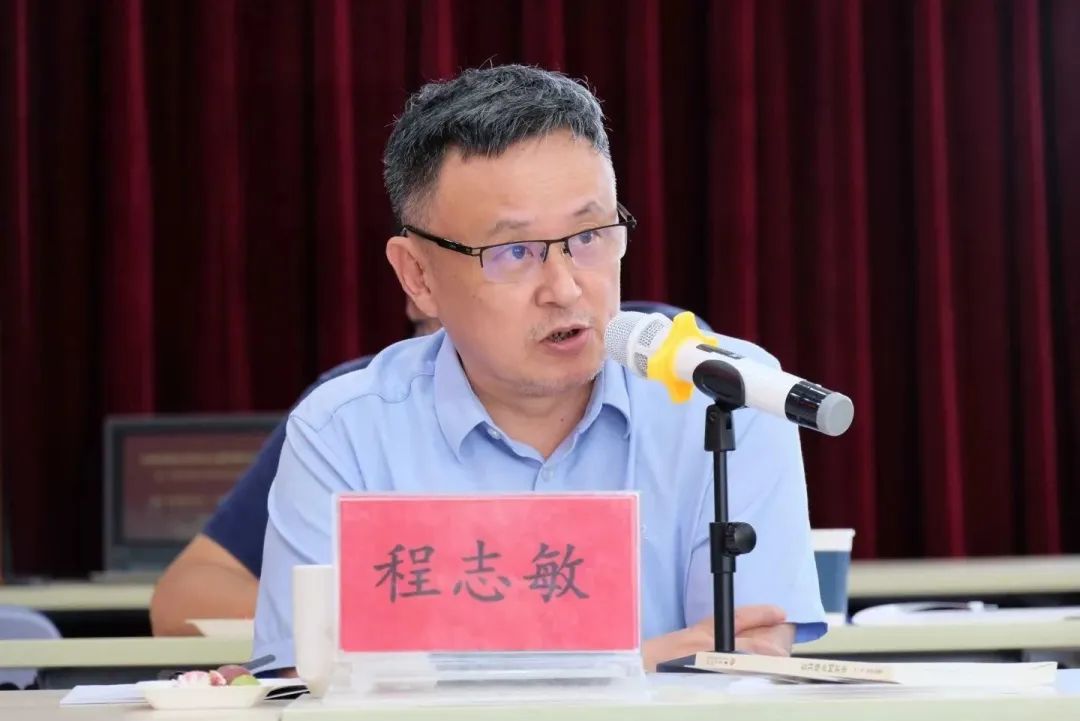
Cheng Zhimin, professor of the Social Sciences and Humanities Center, Hainan University, presented three wishes for the newly founded Classical Studies Association. The first is to clearly understand the times. The classical studies are right on time, so it has a bright future. The second is to keep alert on some ill conduct to ruin the discipline of classics in its own name. The third is to embrace critics as kind criticism can help us grow and evil criticism can urge us to get mature. All critics are our friends.
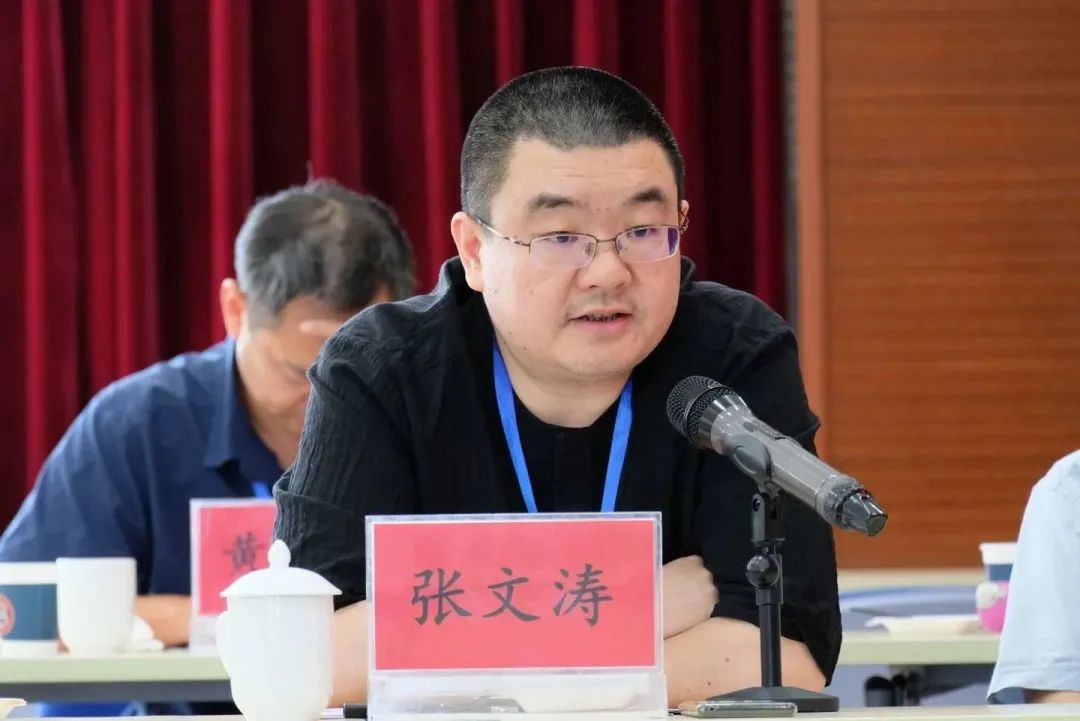
Zhang Wentao, professor of the Department of Philosophy, Chongqing University first briefed on the building of the discipline of classics in Chongqing University and the predicament faced in its development, and expected that the founding of the Classical Studies Association could provide support for resolving it. Then he expounded on his understanding of the relationship between classics and such traditional subjects as arts, history and philosophy, believing that Chinese classics research must be equipped with a kind of interdisciplinary, holistic and problem-oriented perspective.
Professor Zhang Wentao also expressed his consent to the views of professors Zhang Wenjiang and Tang Wenming that mutual learning among civilizations is based on China and we should think how to deal with the pressure brought about by Western civilization. Meanwhile, he stressed that in the past, mutual learning among civilizations focused more on self-criticism through the mirror of Western civilization, but now we should pay more attention to find our own merits through comparison and contrast, and see clearly the threats facing Western civilization and its deep-rooted historical cause.
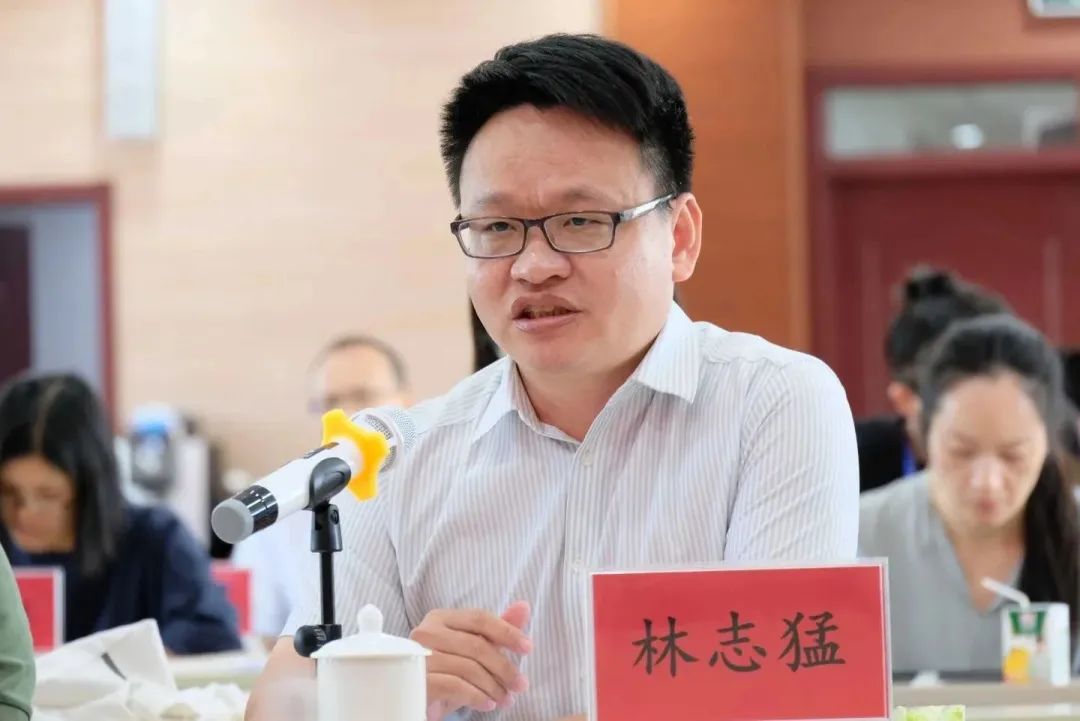
Lin Zhimeng, vice dean of Ma Yifu College and professor of the School of Philosophy, Zhejiang University, said that the text of classics is still the foundation. Current Western classics has brought in a lot of modern perspectives in its understanding of Western thoughts. In fact, it has not truly returned to its origin. In terms of the link between classics and reality, the current Western world is faced with serious crises of abused amusement and internal political friction. Although these crises are typically shown in the Western world, they are becoming more and more prominent in China. Professor Lin held that strengthening the systematic and institutional building of the classics discipline will help spark the dynamic of thoughts and fully leverage the inspirational role of classics to cope with modern crises.

Wang Chengjiao, associate professor of the Boya (Liberal Arts) College of Sun Yat-sen University, gave a full account of the development of the Boya (Liberal Arts) College. It has successfully broken the barrier of the current disciplinary establishment in the curriculum design, providing its students with a broader space of development. Professor Wang said that the achievements made by the Boya (Liberal Arts) College demonstrates that classics still has a big room for development even under the current disciplinary establishment.
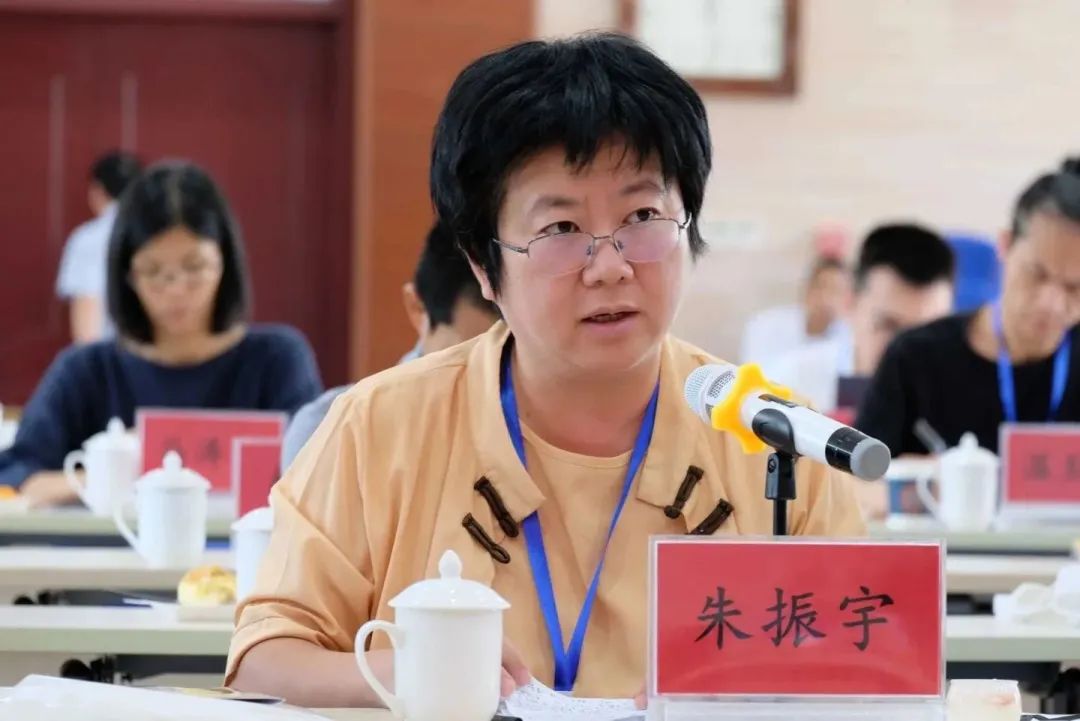
Professor Zhu Zhenyu of the School of International Studies, Zhejiang University, from her own experience in the research on Dante, emphasized the possibility and necessity of promoting the development of Chinese classics on the basis of Chinese civilization and blazing a trail that is different from the development of Western classics. Professor Zhu found in this teaching practice that the foreign language teaching is now totally empirical, which is not friendly to students. If more history of thoughts can be integrated into the foreign language teaching together with the current problems of our times, such teaching method will really be welcomed by students. As for how to re-create classical tradition, Professor Zhu said that a great writer must have reinterpreted the classical tradition based on the problems of his own times, which is what classics really means.
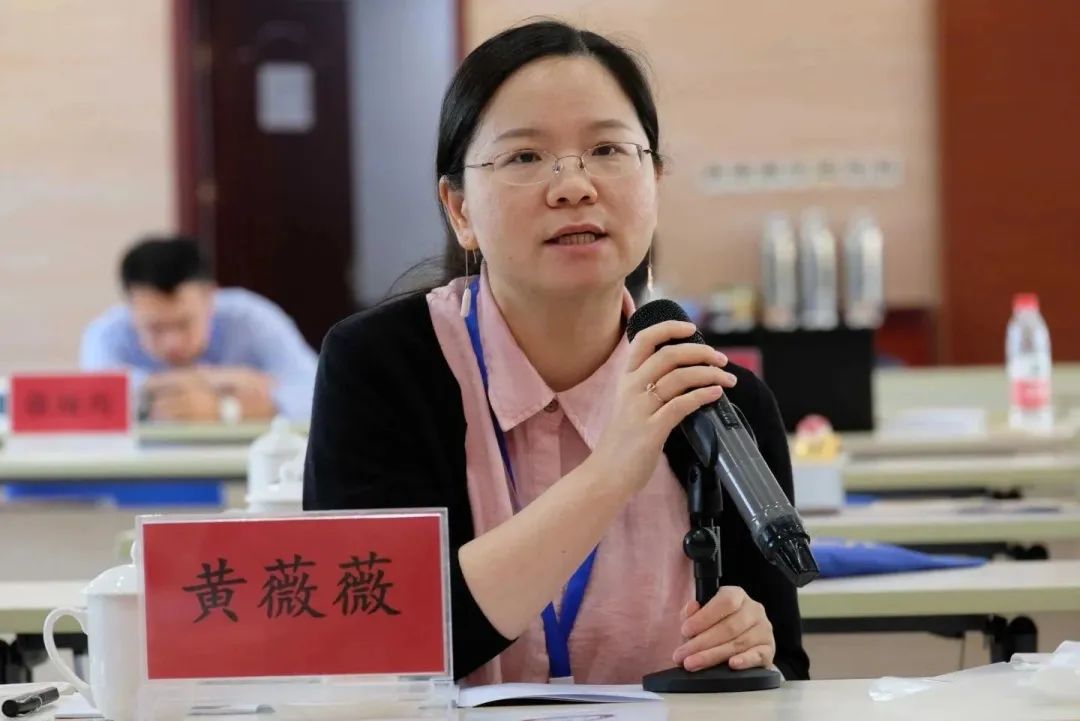
Huang Weiwei, professor of the Center for Greek Studies, Beijing International Studies University, introduced the development of classics in its university from the disciplinary establishment and student cultivation. Similar to Chongqing University and Sun Yat-sen University, its disciplinary establishment of classics is also confronted with the problem of a diminishing number of classical language courses year after year, which is particularly detrimental to the further education of students in classics.
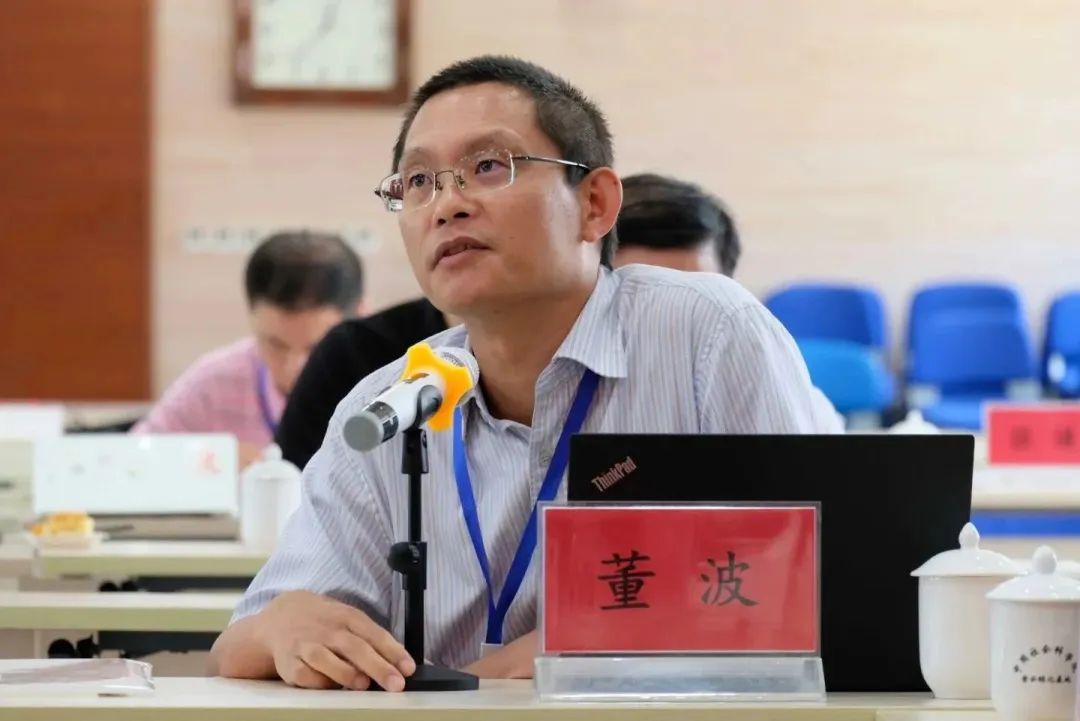
The last speaker is associate professor Dong Bo of the Boya (Liberal Arts) College of Sun-Yat Sen University. He said that classics is a discipline that can let one settle down and pursue his goal as studying classics must take a down-to-earth approach to work on texts word by word. Research in Classics, which represents the scholars' unremitting efforts over the years, and the final publication of Plato: Complete Works by many translators, embody such scholarly spirit featuring working diligently and assiduously without distractions.
Seminar II:Eric Voegelin and Chinese Civilization
On the afternoon of August 13, the second seminar on "Eric Voegelin and Chinese Civilization" hosted by Professor Liu Xiaofeng started with four speakers delivering remarks.

The second seminar.
Professor Tang Wenming kicked off the seminar with the speech titled "Voegelin's philosophical analysis on the order of Chinese civilization". He stated that Voegelin gave up his original West centrism and admitted that there were many worlds in existence during the human historical development and changes in Order and History, Volume IV, The Ecumenic Age. And China, just as another representative of the world different from the Western world, appeared in the theoretical analysis of The Ecumenic Age. Such a breakthrough transformation caused professor Tang Wenming to ponder on the questions "how did Voegelin view Chinese civilization in different periods?" and "how should we evaluate Voegelin's studies on Chinese civilization?"

The second speaker was Lin Hu, research fellow of the Institute of Ancient History, CASS. The title of his speech was "The Charm of Political History: Structure, Events and the Mainstay". Lin questioned the practice in modern history research of laying particular emphasis on "disclosing" the historical structure behind the actors. Because their own acts are the important factors of shaping the structure, there will be room left for actors to leverage their own initiatives no matter how tight the structure is. Therefore, actions rather than structures should be the main content of history. In this sense, the political history concerning the action itself can be more possibly govern the history of economy, society, culture as well as system, constituting a complete understanding of history. Taking the example of the analysis of Yingxing on Xiangying, and the evaluation of Mr. Wang Yuji on "the Military Mutiny at Chenqiao Bridge" as examples, he revealed the view and charm of the political history.
Professor Chen Yun was the third speaker. The topic of his speech was "The Sense of Man's Morality and the Form of Confucius Survival Truth from Voegelin's Philosophy." He pointed out that Voegelin expounded the differentiation progress from the truth in the cosmological style based on primordial universe experience to the existential truth based on the tension of human nature consciousness in the ecumenic age in The Ecumenic Age. Voegelin further gave different forms of existential truth in ancient Greece and Israel, including the humanistic truth expressed by philosophical symbols and the redemption truth shown by revelation symbols. He believed that although China constituted a parallel world relative to the West, it was regarded as a symbolic form that had not been independently established, nor a form that had developed a unique existential truth. It is just an order and wisdom close to humanistic studies. However, Chen also proposed his own understanding in this regard. The intermediate tension in human nature that Confucianism bears or the ideological site transcending experience are consciousness of benevolence, and its existential truth form could possibly be generalized as the middle way, while the signs created for expressing such the middle-way existential truth is different from the history of philosophy and inspiration.
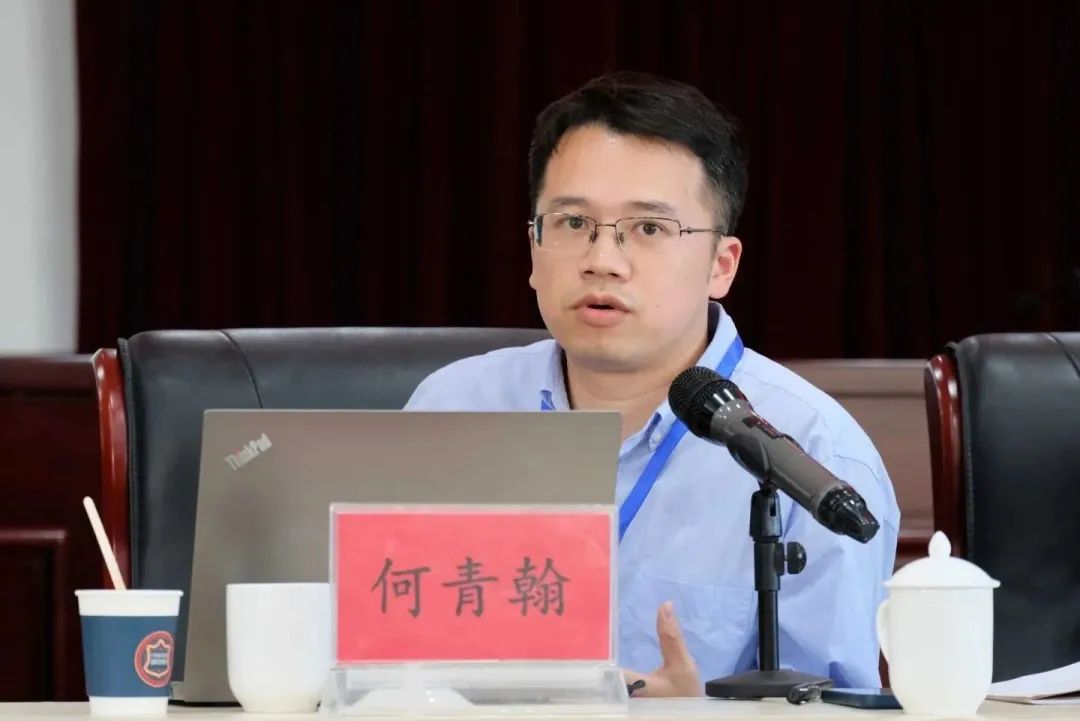
The fourth speaker was He Qinghan, lecturer of the Department of Culture and History, the National Academy of Governance. The topic of his speech was "The East Asian Order in the Voegelin and post-Zhu Zi eras". He stated that whether Voegelin was willing to accept or appreciate the Chinese civilization or not, in such a concept of "unfinished breakthrough", he had more or less showed his recognition toward a certain dynamic, changeable and "unfinished breakthrough"-oriented spiritual strength implied in the Chinese civilization. In fact, Voegelin's examination toward the Chinese civilization had terminated till the Qin and Han dynasties (221 BC-220), so the Tang (618-901) and Song (960-1279) dynasties as well as the group of neo-Confucianists appearing in the Song and Ming (1368-1644) dynasties, to which he did not pay any attention, seemed to have provided ample acting space for thinkers who have the intention to promote and rectify the inference of "unfinished breakthrough" in terms of the materials of thought and historical times. In Voegelin's range of vision, the society of China or the East Asian region after the Song Dynasty should not be simplified as the stiff confrontation between the "monistic theocracy" and the "dualistic theocracy", and between "empire" and "nation state". Therefore, in the entire East Asia, the theocratic form of integrating religion with politics adopted by China should at least be understood at the philosophical and ideological levels as a kind of sincere efforts to pursue a balance between politics and religion that completely matches Voegelin's ideas.
Seminar III: Plato in China
The third seminar entitled "Plato in China" was held on the morning of August 14. It was hosted by professor Peng Xiaoyu. At the seminar, Professor Liu Xiaofeng delivered a speech on "Understanding Plato's Sensory Threshold of Consciousness".
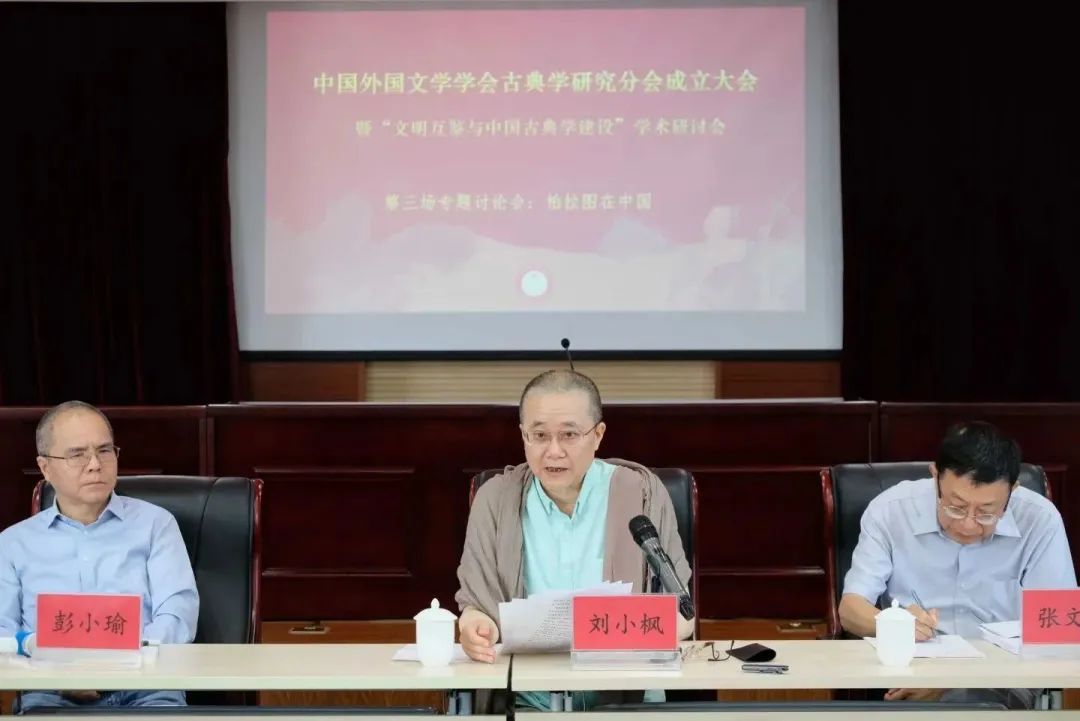
The third seminar.
First of all, Professor Liu Xiaofeng explained the meaning of the psychological term of "sensory threshold", which refers to the division from unconsciousness to consciousness.
Professor Liu proved Plato's sensory threshold of consciousness from his own experience of reading Plato' works. In as early as 1959, Plato's Selected Dialogues on Arts translated by Mr. Zhu Guangqian was published. Although Professor Liu read this translated version, he did not understand it. Later, he also tried hard to read Parmenides translated by Mr. Chen Kang, nor did he comprehend Plato. He said, the latter situation could be understood, but why the first situation occurred, let alone he realized the importance of Plato. Obviously, the guidance of the usher is essential. It is Leo Strauss who inspired Professor Liu to understand Plato's sensory threshold of consciousness, but then why?
Professor Liu thereof proposed the historical significance of Plato's entry into Chinese academic circle. He felt that after understanding the sensory threshold of Plato's consciousness, such an astonishing phenomenon occurred in the sensory threshold of understanding the Chinese classics that understanding Plato became the precondition of understanding the spirit of Chinese classics. Why did this happen? Professor Liu admitted that he had not made it clear until now.
Even so, Professor Liu Xiaofeng finally emphasized that the historical significance of Plato's entry into the Chinese academic circle lies in that it has urged us to realize that civilized virtue is the fundamental problem of mutual learning among civilizations, and scholars' self-education under any historical circumstances. He believed that ancient Chinese thinking was primarily connected with Plato's ideas. But it was only because our ancient people had never faced the democratic society that their ways of expression left many problems hidden under the sensory threshold of consciousness. Therefore, through reading Plato's works, our sensory threshold of consciousness about Chinese classics would be much lowered.
After Professor Liu's speech, attendees had heated discussions about the theses simultaneously in three different sub-forums. At each sub-forum, six scholars who had submitted theses delivered remarks respectively.
Sub-forum I: Plato and Poetics
The first sub-forum on "Plato and Poetics" was hosted by professor Cheng Zhimin. It was commented by Associate Professor Dong Bo and Associate Professor Zhang Shuang of the Philosophy Department of Sichuan University.
Professor Zhu Zhenyu delivered a keynote speech entitled "Timaeus, Paradise and Dante's The Book of Universes". She pointed out that we can still understand the framework of "double universes" constituted by Dante according to the theory of forms and copy in Timaeus although there were conflicts on the origin of souls between Plato and Dante as the ancient theory of universe has been integrated into Dante's The Book of Universes in a new way.
Luo Feng, research fellow of the English Department of the School of Foreign Languages, East China Normal University, made a keynote speech titled "Plato's Thought on Bravery in Laches". She said that Laches and Nicias made sharply contrasting definition to bravery, but both faced respective dilemma, which could hardly be justified, in Laches, Plato's dialogue which most clearly discusses bravery. She said that true bravery was closely related to abstinence, justice and wisdom. The reason for the failure in providing an exact definition in the dialogue was to render different people with different edification in terms of virtue.
Lou Lin, associate professor of the Centre for Classical Civilization of the Renmin University of China, made a keynote speech on "Dual Remarks of Protagoras and Destruction". He interpreted the text from 169d to183c and analyzed the implication that Theaetetus refused to join the Socrates' dialogue for three times and the truth of how Socrates disclosed the dual remarks of Protagoras, and guided Theaetetus to "break away from" Protagoras.
Hu Jia, associate professor of the College of Humanities of Yangzhou University, made a keynote speech entitled "The Plot Argumentation of Phaedrus". Professor Hu said, for a long time, the second lecture of Phaedrus was well received by researchers, but this lecture was only a metaphor that Socrates used to help Phaedrus with limited comprehension to easily understand, so its significance deserves thinking. We should think when Socrates chose to use a metaphor instead of a direct statement, and when he would tend to cite literary quotations instead of conducting discussions. Perhaps it could help us more easily grasp the key in Plato's style of writing.
Associate Professor Huang Junsong of the Boya (Liberal Arts) College of Sun Yat-sen University delivered a speech on "How to enter Plato's Dialogue". He mainly discussed the characteristics, limitation and new progress of the development theory paradigm of the Plato research circle in the 19th and 20th centuries. He also pointed out that some aspects of the new progress, such as concerning the entire dialogue, what Plato said and did not say, as well as the contents of literature and philosophy, could be mutually referring with the interpretation access of Felix Christian Klein and Leo Strauss among others. At last, he also stressed that studying Plato's dialogue must balance the theoretical interpretation and philosophical analysis, and neither should be neglected.
Wan Hao, assistant research fellow of the Institute of Philosophy and Religion of Guangdong Academy of Social Sciences, made a keynote speech on "Socrates with no Help". He said that Plato used the fight of Hercules in the mythology as the metaphor of the confrontation between Socrates and the sophist in Euthydemos. In the dialogue, Socrates not only bore the task of guiding children onto the right path of loving wisdom, but also tried to redeem the fault in the sophist's own remarks. Meanwhile, he also showed the road that ordinary people should set foot on for Kriton. Therefore, in the sense of wisdom, Socrates in Euthydemos was unprecedentedly lonely.

The sub-forum
Sub-forum II: Plato and Political Philosophy
The theme of Sub-forum II was "Plato and Political Philosophy." It was hosted Byprofessor Zhang Wentao and commented by Professor Peng Lei of the Centre for Classical Civilization at the Renmin University of China and Associate Professor Xiao Youzhi of the College of Liberal Arts at Shanghai University.
Professor Lin Zhimeng made a speech titled "The Democracy in the View of Plato's Theory of Ideas." Taking the Republic and Laws as the chief source, he inspected metapolitics in Plato's writing covering monarchy and democracy, and particularly studied Plato's criticism to democracy and ideas of mixed political systems.
Associate Professor Ye Ran of the College of Chinese Language and Literature at Henan University delivered a speech titled "Reading Protagoras' ‘It's Hard to be Noble'". By explaining Protagoras 338e-347a, he pointed out the fundamental difference between the sophist and Socrates in the moral standpoint.
Research fellow Chen Mingzhu of Zhejiang Academy of Social Sciences delivered a speech titled "Who is Meno? Looking at Meno in Plato's Meno from Strauss' Lecture Notes." She examined the unusual sharp description of Meno in Xenophon's Ascent, holding that we could not identify the character Meno in Xenophon's writing with Meno by Plato. According to the further interpretation of Stauress' lecture notes, Chen analyzed multiple imageries of Meno in Plato's works.
Wang Jiangtao, associate professor at East China University of Political Science and Law, delivered a speech titled "Aletheia and Justice — Martin Heidegger's Statement about Plato's Allegory of the Cave". He elucidated and critiqued Martin Heidegger's argument about Plato's Allegory of the Cave. Based on the two books On the Nature of Truth — Plato's Allegory of the Cave and (Theaetetus)'s interpretation" and Plato's Theory on Truth, he expounded and critiqued Heidegger's argument on Plato's Allegory of the Cave. Professor Wang thought that such intelligence was only applied in truth and did not touch the more profound issue of soul although Heidegger's interpretation about the Allegory of the Cave displayed his extraordinary intelligence.
The topic of the speech of Associate Professor Xu Jian of the School of Public Administration, Guizhou University, was "Stoics' Discourse on Regime". He said that the philosophers of Stoics shelved the ancient Greek's regime theory and were more willing to radically criticized the real regimes with the ideal of Cosmopolitanism. However, since Stoics entered Rome, it had gradually tended to acknowledge the value of the traditional regime theory. In addition, due to Rome's dominating position at that time, Stoics chose to accept Rome's institutional arrangement. It defended the republic system that had brought freedom first and then recognized the monarchy that could create peace. Overall, Stoics began to shift from the radical regime stance to the conservative regime stance.
The title of the speech by Editor Wen Yuwei of the Commercial Press was "The Eternal Challenge of Apoliticism: Reading Friedrich II's Antimachiavel." He held that Friedrich II's Antimachiavel adopted the literary form. It tried to persuade members of the kingdom to actively participate in the growth of the country by refuting Epicurus and the philosophy of global citizenship so as to take it as a king's political education.
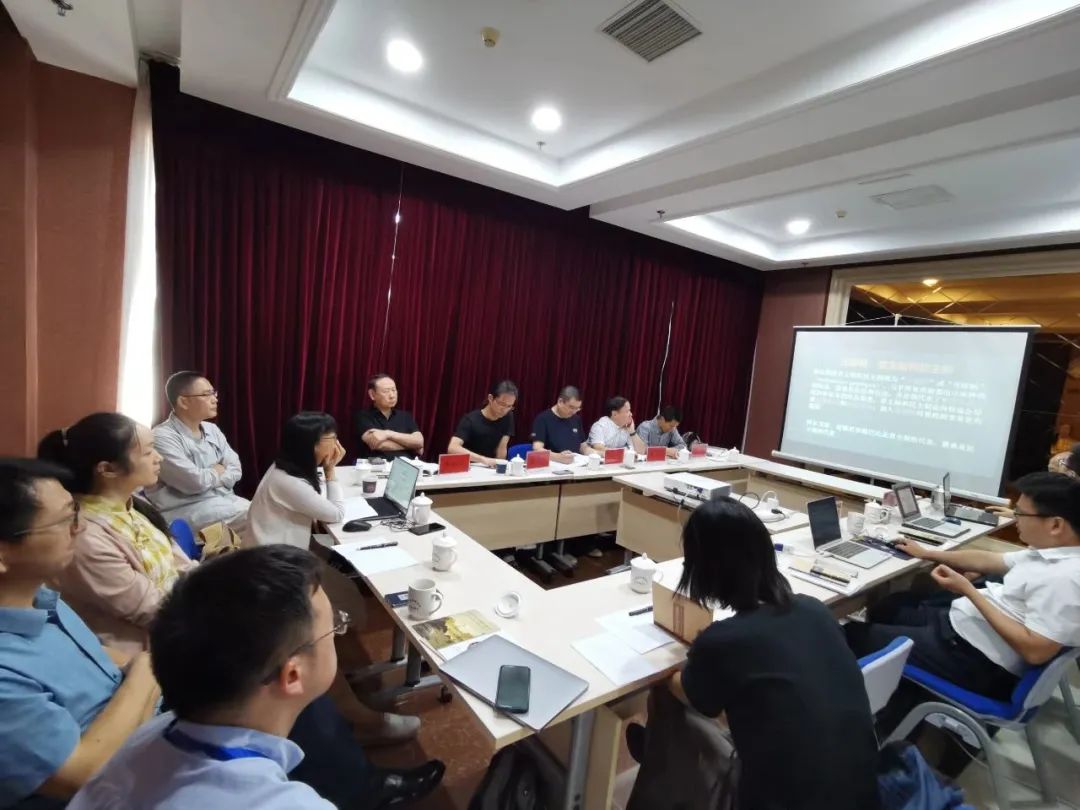
The sub-forum.
Sub-forum III: Plato and Classics
The theme of Sub-forum III was "Plato and Classics." It was hosted by professor Chen Rongnv and commented by Associate Professor Wang Chenjiao and Professor Huang Weiwei.
Dr. Yan Di, Assistant Professor of Xinya College, Tsinghua University, delivered a speech titled "the Myth-of-origin Deucalion and the Big Flood Tradition." By comparing the myth-of-origin Deucalion and Athens' myth of "Planting of Warriors" and Thebes myth of "Planting Dragon's Teeth for Growing Warriors," Dr. Yan held that it had endowed "humans" with the significance of cosmology and theodicy when Deucalion myth highlighted "the origin of man" as the subject of his narration. Moreover, the narration of the latter part of Deucalion myth also included a rather unique and significant creative narration of the creation of warriors.
The topic of the report of Associate Professor Luo Xiaoying of the Department of Philosophy of Chongqing University was "Etna's Temptation — Nature and Belief in Empedocles' thinking." Through deeply exploring Empedocles's seemingly contradictory ideas and world of life, Professor Luo thought Empedocles' action of integration with nature was another expression to show his discovery of nature, his belief, by which it would confirm its belief of the certainty of change or cycle, and the result of passionately pursuing deterministic metaphysics.
Wang Jiawen, doctoral student of the University of Chicago, made a speech titled "Dodds' Classics and Irrational Research." She gave an overview of the book The Greeks and the Irrational, the masterpiece of contemporary famous classics scholar Dodds. She pointed out that Dodds' engagement in ancient Greek irrational research, in fact, originated from his concerns on his himself and his times. He believed irrationality was an unavoidable part of human experience, so it was necessary to make irrational observation, description and understanding of it.
Professor Zhu Qi of Sichuan International Studies University introduced the research of Koontz's on Jean Bodin's view of religion. By analyzing the relationship between the Discussions between Seven Greek Sages, Universal Nature Theater, and On the Demon-Mania of Witches, Koontze expounded the basic stance and change in Bodin's religious view.
Dr. Li Xiangli at Beijing International Studies University delivered a speech titled "The Conception of commercial Society in Montesquieu's Lettres Persanes". By interpreting several letters between Usbek and Muslim youth Rhedi, Montesquieu presented Usbek's ideas about how he negated tradition and constructed his own all new commercial republic. In this way, Lettres Persanes was secretly inserted with Montesquieu's political and philosophical ideas, and was completely embodied in Usbek's observation and thinking on the social customs and political systems between the East and the West.
Dr. Yao Xiaoyu of School of Government of UCASS made remarks titled "What did the Axial Age Shield: Voegelin and the Chinese Civilization in the view of ‘the Ecumenic Age'." He pointed out that, inspired by Karl Jaspers' historical philosophy of Axial Age, some Chinese scholars were engaged in understanding China's "breakthrough" from the perspective of "individuality" to "subjectivity". However, such a perspective cannot explain the stability of the Chinese civilization relative to the Western civilization. Comparatively speaking, Voegelin's angle of "the Ecumenic Age" attached more importance to the balance between transcending order and realistic order.
The Closing Ceremony
The closing ceremony was hosted by He Fangying, secretary-general of the Classical Studies Branch of the Chinese Association of Foreign Literature, and research fellow of the Institute of Foreign Literature, CASS. Researcher Fellow Li Yongping and Professor Liu Xiaofeng made a speech respectively.
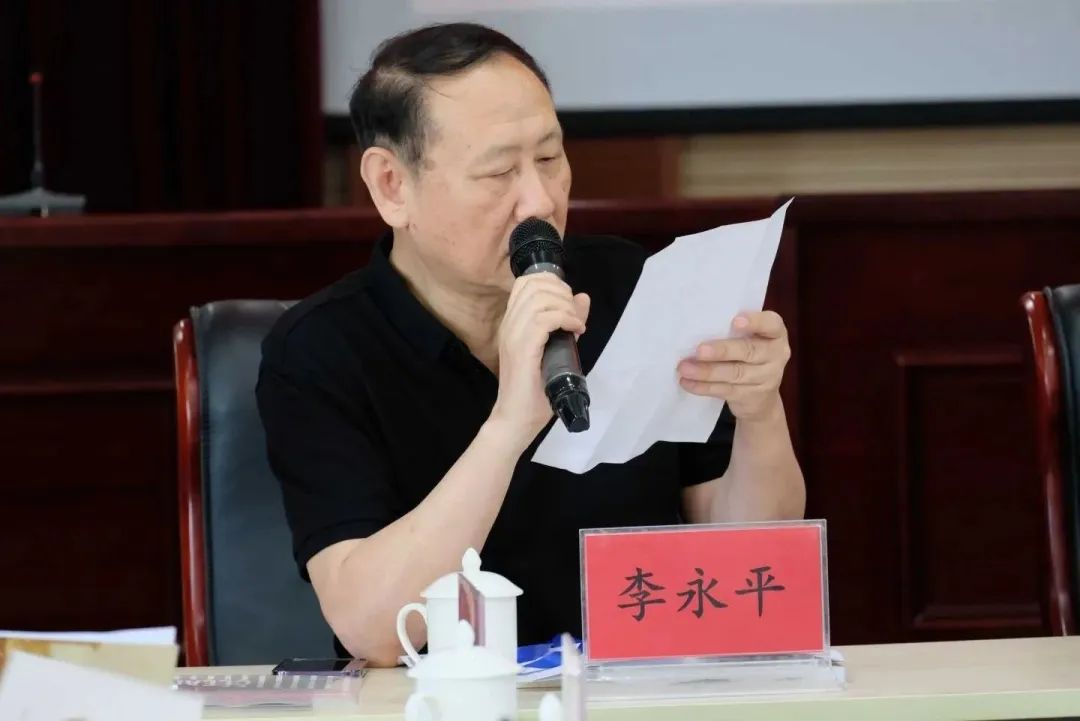
Research Fellow Li Yongping first expressed his congratulations on the establishment of the Classical Studies Association and the journal Research in Classics. He stressed that apart from taking historical and philosophical texts as the research objects, the classics should also focus on literary texts. He believed that, through the classics research, the quality of literary studies will also be greatly improved. Finally, as the president of the National Association for the Study of Literature in German of the Chinese Association of Foreign Literature, Research Fellow Li Yongping called for boosting mutual exchanges between the Classical Studies Association and his association to make joint efforts to enhance the quality of Chinese academic research as well as the understanding of the Western civilization.
In his speech, Professor Liu Xiaofeng first expressed his support for research fellow Li Yongping's advocacy to strengthen ties between the two related institutions. He expected more scholars and experts in the field of German literary research can engage in the translation and research in the orientation of classical studies. Then he passed on the resolution reached at the first meeting of the first council of the Classical Studies Association on its positioning, types of activities and basic systems. At last, he announced that the Inaugural Conference the Classical Studies Branch of the Chinese Association of Foreign Literature and the Symposium on "Mutual Learning among Civilizations and the Building of Chinese Classics" concluded successfully.

The closing ceremony of the event
